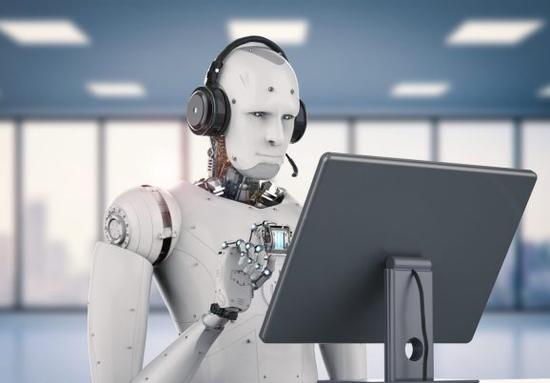This article is produced by NetEase Smart Studio (public number smartman 163). Focus on AI and read the next big era! [Netease Smart News November 26 news] In the past few years, artificial intelligence has covered almost all news sections, attracting many eyes of entrepreneurs, investors and consumers. We can see its potential: self-driving vehicles, home robot assistants, and Amazon Echo 14.0, which allows people to do things that the human brain can never think about. This future is not far away, and maybe it will be a reality in ten years. However, as we talk about AI topics and reading AI-related articles, many of us still think about this issue in the wrong way. People compare AI with human intelligence, and often regard human intelligence as the ultimate goal that AI can achieve. We are already very familiar with human intelligence, so it is natural to use it as a measure of metrics. But things are like this: Human intelligence is closer to the bottom. Why establish AI goals that match human capabilities? For many people, the goal of AI is to create technologies that can think like humans. But it is too simplistic, thinking that any intelligence (whether human intelligence or artificial intelligence) can be rated as "good or bad" on such a simple scale. Some people are good at memory, logical reasoning or emotional intelligence, while others have more visual or auditory abilities. Similarly, AI has strengths and weaknesses. In addition, why should we develop AI goals that are compatible with human capabilities, and we must also include the defeat of human intelligence in the scope of research? Think of all AIs that seem to have gone beyond all dimensions of human intelligence. Can humans translate a text into any of 300 languages ​​in just 1 second? How to immediately determine the best driving route to avoid all traffic congestion? In many tasks, the performance of the machine has exceeded us, especially those tasks involving big data processing. What are our expectations for AI? Don't get me wrong. To my excitement, AI began to imitate humans through observation and interaction with the world and learn about human capabilities. This is the so-called universal artificial intelligence (AGI), which does not require data training to gain experience directly. Of course, the film industry is being attracted by the universal AI. The machine appears in the form of human beings, has complete features, can understand the world, and communicates with the world. Imagining the coexistence of machines that are indistinguishable from humans in form and intelligence is a surreal, interesting idea, but it is not a useful benchmark for understanding the current environment and trajectory of AI, and how AI will affect most products and industries. AI should not be judged by human means. On the contrary, the greatest impact of AI over the next 10 years may be in specific areas. In order to achieve this goal, AI needs data, and it is a large amount of data. These new and stunning smart forms are born of fast algorithms that can handle more and more data. AI and data-driven software focused on one area are on the verge of causing large-scale industrial disruptions. For example, in Applied Semantics and later in Google, we built a machine learning system that selected the best from millions of ads, all of which were completed in milliseconds. Every time we serve an ad with no clicks, it becomes an extra data point that can be used to train AI, because this is a small opportunity for system learning, and more importantly, it can help AI make to the world. New conclusions. With trillions of data points, these systems have become surprisingly effective and certainly far beyond human capabilities. The symbiotic relationship between data and AI We are witnessing a geometric progression of demand for data. Almost every industry and field in the business world is moving in the direction of digital transformation: from physical shopping to e-commerce, from television advertising to mobile marketing, and from cash to encryption. These new specifications require software, AI and data, and a large amount of data. This is exactly why I created Factual: Provide the highest quality location data for digital innovation, including AI. Data companies help companies develop new products, acquire customers, and understand the usage patterns in the real world. In order to build an engine for producing such data, we must build our own AI, which in turn will be supported by more data from partners. This is a very good feedback loop. The effectiveness of our proprietary AI cannot easily be compared to humans because its capabilities lie in different dimensions of intelligence, such as by processing trillions of data points to gain meaning. Many of AI's most promising applications are not those that look most like ours, but those that can do things we never thought of before. (From: VentureBeat Compilation: NetEase See Compilation Robot Review: Little) Pay attention to NetEase smart public number (smartman163), obtain the latest report of artificial intelligence industry. Household Energy Storage System Enershare's commitment to future-ready energy solutions for smart home innovations, Enershare's Energy Storage Systems create a flexible energy maintenance system for homeowners who want to take more control of their home energy use, it is intended to be used for home battery energy storage and stores electricity for solar self-consumption, load shifting, backup power, and off-the-grid use. you can use it anytime you want-at night or during an outage. Home Energy System,Home Battery Storage 10Kwh,Residential Energy Storage Unit,Residential Energy Storage System,Battery Energy Storage Solutions,Home Energy Storage Systems Shenzhen Enershare Technology Co.,Ltd , https://www.enersharepower.com